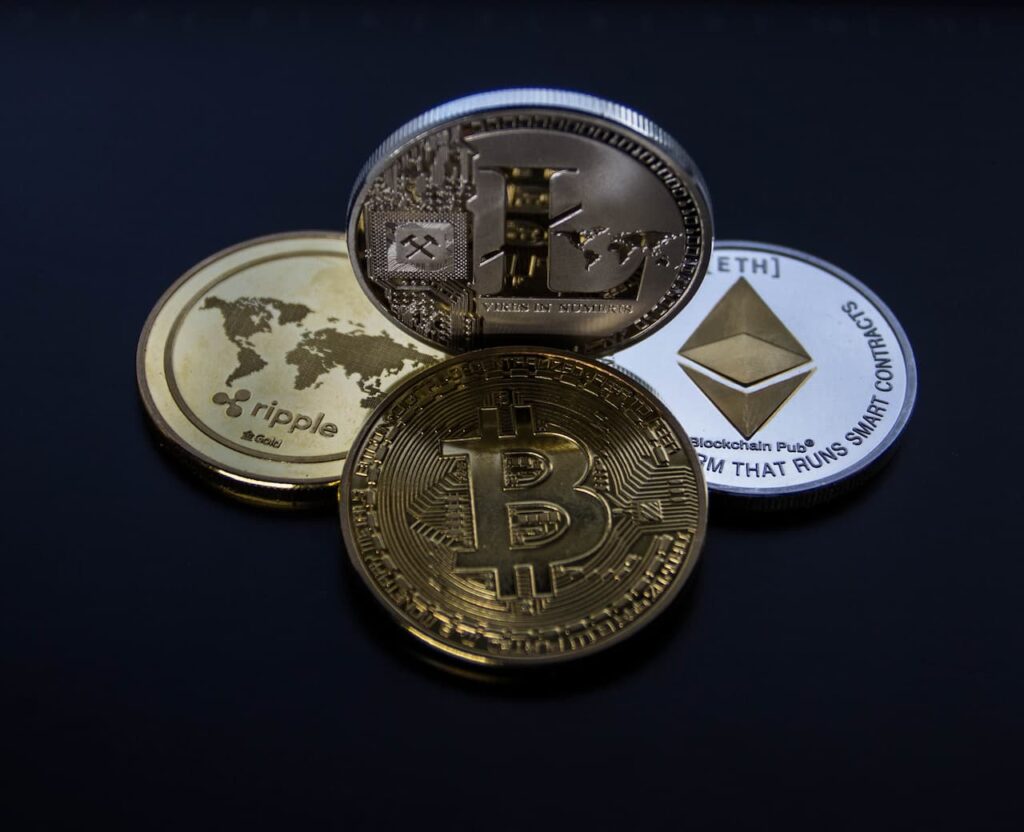Digital money has sparked a lively debate as inflation makes everyday life tougher for many. Rising prices and shrinking purchasing power push people to search for alternatives that can protect their savings. Cryptocurrencies have captured the attention of investors and curious onlookers alike. They promise a new way to shield wealth when traditional currencies lose their value. However, opinions differ on whether these digital assets live up to their promise.
The Inflation Challenge
Inflation happens when prices for goods and services rise. As prices increase, the same amount of money buys less than before. Central banks try to control this process by adjusting interest rates and other tools. In cases of extreme inflation, money can lose value quickly. For example, there have been instances where prices doubled within days, leaving many people scrambling for stable alternatives. This financial pressure has led many to search for new methods to protect their savings.
The Allure of Digital Money
One major attraction of cryptocurrencies is that they are not controlled by any single government. Traditional currencies are managed by central banks, which print money and set policies that can sometimes lead to devaluation. Digital currencies, on the other hand, run on decentralized networks. Bitcoin, the first and most well-known digital currency, has a fixed supply of 21 million coins. This limit has sparked interest among those who believe scarcity can hold value when paper money loses its worth.
Other digital currencies follow different models. Ethereum, for example, does not have a capped supply, yet it has attracted significant investment because of its innovative design and functionality. Today, more than 4,000 digital currencies circulate in markets around the globe. Many investors are drawn to these assets by the hope that their limited supply or unique characteristics might keep their value stable during inflationary periods.
Myths That Persist
Several common myths surround the role of cryptocurrencies as a defense against inflation. These ideas are attractive but do not always match reality. Consider the following claims:
- Steady Protection: Some believe that digital currencies always rise when inflation increases.
- Guaranteed Stability: Others assume that these assets offer a safety net against economic shocks.
- Sure Store of Value: A third view holds that digital money provides a consistent safeguard for savings.
Data and market trends tell a different story. Digital currencies are known for sudden price swings. Many investors have witnessed dramatic increases followed by rapid declines. These movements make cryptocurrencies a risky asset for those hoping for a steady store of value. The assumption that they automatically protect against inflation does not match the evidence.
Facts and Fears
Many investors see cryptocurrencies as a potential hedge against inflation. They point to periods when Bitcoin’s price surged even as inflation rates climbed. However, history shows that digital currencies often experience severe volatility. In some cases, prices have fallen sharply even when inflation was high. For example, during a period of economic uncertainty in 2022, several digital currencies dropped in value despite rising inflation rates. Such price swings indicate that the safety promised by digital money is not guaranteed.
The market for digital currencies is influenced by many factors. Investor sentiment, global economic news, and unexpected regulatory changes can all trigger rapid shifts in price. One study from 2021 found that the connection between inflation and the returns on digital currencies was not steady. This evidence suggests that while some investors have made money during inflationary periods, others have faced significant losses. A report from a financial news outlet showed that nearly one-third of digital currency investors experienced severe losses during one volatile phase.
Regulation and Market Behavior
Government policies have a strong impact on the performance of digital currencies. Some nations have introduced strict rules that limit the use of digital money. In contrast, other countries are more welcoming, which can boost investor confidence. When a government announces new regulations, the market often reacts quickly. For example, one announcement led to a nearly 10% drop in Bitcoin’s value within a few hours. Such rapid responses highlight the sensitivity of digital currencies to external events.
Market participants keep a close eye on regulatory news. Traders and investors adjust their positions when new rules are expected or announced. This behavior makes digital money a high-risk option during times of economic stress. For those who wish to use these assets as a safeguard against inflation, staying informed about regulatory changes is essential. The market’s sensitivity to news and policy shifts adds another layer of uncertainty to an already unpredictable asset class.
What Lies Ahead?
The future of digital currencies is uncertain. Many investors hope that advances in technology and wider acceptance will bring more stability to these assets. As more institutional investors enter the market, the belief is that the increased participation could help smooth out sudden price swings. Recent figures show that the total market value of digital currencies has grown to over $1.5 trillion. This growth reflects a rising interest that might, in time, lead to steadier performance.
New developments may also shape the future role of digital money. Some countries are considering the introduction of their own digital currencies. Such government-backed assets could influence how private digital currencies behave. If central bank digital currencies gain traction, they might set new standards for what people expect from money. Investors will need to watch these trends closely as the debate over inflation protection continues.
While there is hope for greater stability, the inherent risks of digital currencies remain. Market fluctuations, regulatory uncertainty, and global economic shifts all contribute to an unpredictable environment. Investors who are attracted to the promise of digital money as an inflation hedge must be prepared for sudden turns in the market. Patience and careful monitoring of economic indicators can help manage these risks.
Balancing Hopes and Caution
Many see digital money as a promising solution to the challenges of rising prices. Stories of impressive returns often capture the public’s attention. Yet, caution is needed. Investors should study market trends and follow global economic indicators closely. Small investments in digital currencies have helped some people diversify their savings. At the same time, there are many examples of losses during market downturns.
The decision to invest in digital money must be made with a clear understanding of both its potential and its risks. A report from a well-known financial source revealed that a significant portion of digital currency investors faced heavy losses during a volatile period. Such statistics remind us that the promise of digital money is not a guarantee of protection against inflation. Each investor must assess their own risk tolerance and financial situation before committing funds to digital currencies.
Daily Impacts and Ongoing Debates
The effects of digital currencies are visible in daily market updates. Financial news outlets frequently report on dramatic price movements of assets like Bitcoin. When inflation data is released, digital currency prices often shift sharply. This constant motion makes the market both exciting and unpredictable.
Online discussions reveal a range of opinions. Forums and blogs show that investors share stories of both large gains and steep losses. These discussions offer real-world insights that can help others understand the risks and rewards of digital money. They also serve as a reminder that the promise of a steady inflation hedge is still up for debate among experts and everyday investors alike.
The Role of Data and Research
Reliable figures are essential for anyone considering digital currencies as a protection against inflation. Independent studies and market reports provide insights into how these assets perform compared to traditional ones. Some research indicates that the link between digital money and inflation protection is not consistent. Other studies find that the performance of these assets varies widely depending on global events and market sentiment.
Investors have access to a variety of sources for market data. Financial news websites, government publications, and research reports offer a range of perspectives. This information can help form a clearer picture of what to expect from digital currencies. It also serves as a guide for making informed decisions about investing in digital money during times of rising prices.
Final Reflections
Digital currencies have earned a significant place in discussions about protecting wealth during periods of inflation. The debate over whether these assets can provide a reliable shield continues. Myths of steady gains and unwavering safety are popular, yet the evidence points to an unpredictable market with sharp price swings. Price volatility, sensitivity to regulatory news, and global economic shifts all add uncertainty to the promise of digital money as an inflation hedge.
Investors who consider digital currencies must weigh potential benefits against serious risks. Careful study of market trends and a clear view of one’s own financial situation are essential steps before making any decisions. The promise of digital money is appealing, and its growth suggests that it will remain a topic of discussion for years to come. However, its future as a reliable tool against inflation is not guaranteed.
The debate over digital currencies as a tool against inflation will likely continue. Investors must keep their eyes open and study market signals carefully. While digital money offers a new path for protecting wealth, its course is far from clear. A cautious approach may be the best way to face the uncertainty that lies ahead.














